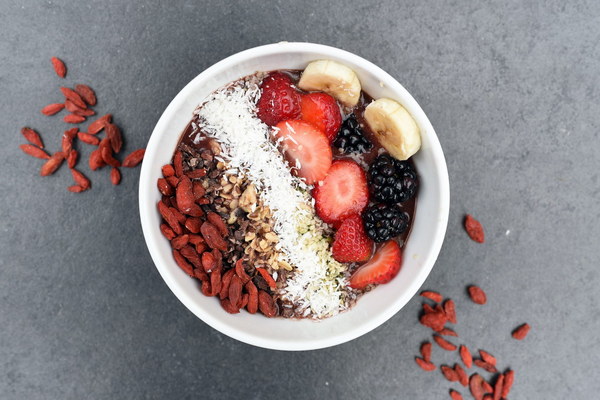Nourish Your Stomach A Holistic Approach to Diet and Exercise for Gastric Wellbeing
In the hustle and bustle of modern life, taking care of our digestive health can often take a backseat. However, maintaining a healthy stomach is crucial for overall well-being. A balanced diet and regular exercise can go a long way in nurturing your gastrointestinal system. Here's a comprehensive guide on how to combine diet and exercise to keep your stomach in tip-top shape.
Balancing Your Diet
1. Choose Whole Foods: Embrace whole grains, lean proteins, and a variety of fruits and vegetables. These foods are rich in fiber, vitamins, and minerals, which help in digestion and prevent stomach issues like bloating and constipation.
2. Hydration is Key: Drink plenty of water throughout the day. Adequate hydration aids in digestion and helps keep the stomach muscles working effectively. Aim for at least 8 glasses of water daily.
3. Mindful Eating: Practice mindful eating by sitting down and savoring your meals. This helps in better digestion as it allows your body to recognize when it's full, reducing overeating and potential stomach discomfort.
4. Moderate Intake of Fatty Foods: Fatty foods can be hard to digest and may lead to indigestion or heartburn. Limit the intake of fried and processed foods and opt for healthier fats like those found in avocados, nuts, and olive oil.
5. Probiotics and Prebiotics: Incorporate probiotics (found in yogurt, kefir, and fermented foods) and prebiotics (found in bananas, onions, and garlic) into your diet. These help maintain a healthy gut flora, which is essential for proper digestion.
6. Avoid Irritants: Common irritants like caffeine, alcohol, and spicy foods can exacerbate stomach issues. Reduce or eliminate these from your diet if you find them to be problematic.
Incorporating Exercise into Your Routine
1. Regular Physical Activity: Engaging in regular physical activity can help stimulate the digestive system. Aim for at least 150 minutes of moderate aerobic exercise or 75 minutes of vigorous aerobic exercise each week.
2. Stomach-Building Exercises: Strengthening your abdominal muscles can improve digestion. Include exercises like planks, leg lifts, and bicycle crunches in your workout routine.
3. Relaxation Techniques: Stress can negatively impact digestion. Incorporate relaxation techniques such as yoga, meditation, or deep breathing exercises into your daily routine to reduce stress levels.
4. Gentle Stomach Movement: Activities like walking, light jogging, or cycling can help move food through the digestive system, preventing constipation and bloating.
5. Avoid Excessive Exercise: Over-exercising can actually disrupt your digestion. Give your body time to recover and listen to your body's signals to avoid overtraining.
Practical Tips for Diet and Exercise
- Meal Timing: Try to eat smaller, more frequent meals throughout the day rather than three large meals. This can help prevent overeating and keep your digestive system working efficiently.

- Pre- and Post-Workout Nutrition: Eat a light, easily digestible meal before exercising to fuel your workout. Post-exercise, focus on replenishing electrolytes and proteins to aid muscle recovery and digestion.
- Listen to Your Body: Pay attention to how different foods and exercises affect your stomach. Adjust your diet and fitness routine accordingly to maintain optimal gastric health.
By combining a balanced diet with regular exercise, you can nurture your stomach and support its health. Remember that these changes are most effective when incorporated into a sustainable lifestyle. Take small steps towards better health, and before long, you'll notice the positive effects on your digestive well-being.









